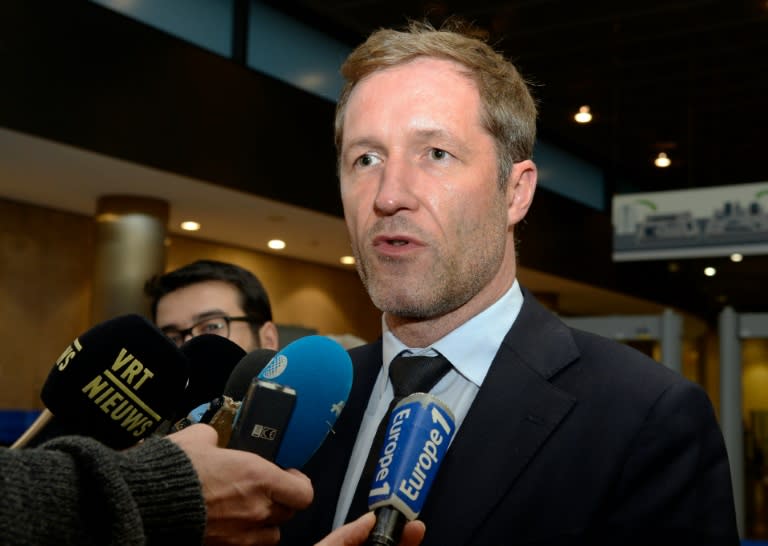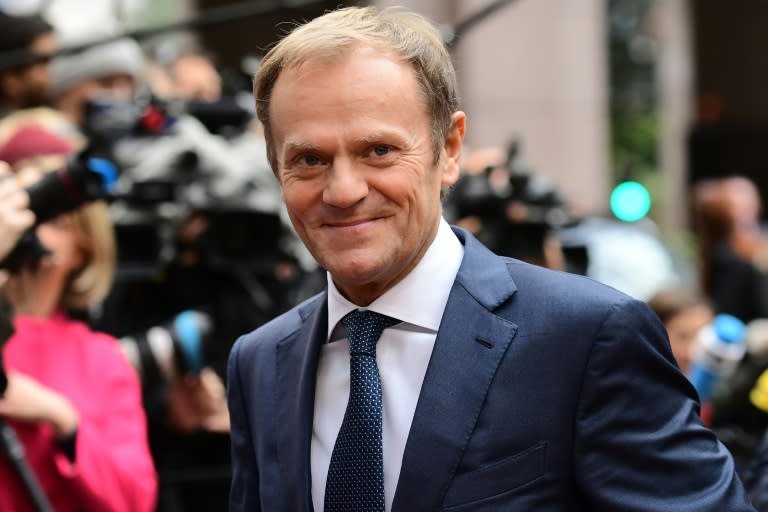EU still hopes for Canada trade deal in overnight talks
The EU said it still hoped to clinch a high-stakes trade deal with Canada as negotiators worked into Friday morning in a bid to win over reluctant regional Belgian leaders. European Union leaders warned that the 28-nation bloc would be incapable of negotiating new trade deals if Belgium is unable to approve the accord with Canada by Friday and provide the unanimous support needed. "I'm insisting we need this trade arrangement with Canada. It is the best one we have ever concluded," European Commission chief Jean-Claude Juncker told a press conference after an EU summit that he had broken off from in order to consult with the parties. Juncker underscored points made earlier by European Council President Donald Tusk, the summit host, who said it "could be our last free trade agreement, if we are not able to convince people that we negotiate to protect their interests." But Juncker added: "I'm still hopeful we will come to a good result in the course of tonight and tomorrow." The head of the French-speaking Belgian region of Wallonia Paul Magnette had yet to seal the deal on the EU-Canada trade accord known as CETA after asking that its signing next week with Canadian Premier Justin Trudeau be delayed indefinitely. Negotiations were ongoing however with Magnette mulling the latest proposals by the European Commission, the EU's executive, in his offices in Namur, 70 km (40 miles) southeast of Brussels. The parliament of the region of Wallonia last week voted to block CETA, meaning that Belgium legally cannot sign up to the pact, leaving the deal in limbo after seven years of negotiations. Magnette, the outspoken head of government of Wallonia, says differences remain too wide on a contested investor protection system that has become a hot-button issue for the anti-free trade movement. EU leaders fear that if CETA were to fail, it would send a signal to the world that it is difficult if not impossible to reach trade deals with Europe. - 'So important' - The struggle to close the deal is also a worry for Britain, with many seeing CETA as a potential model for EU ties with the UK after Brexit. The Canada deal is opposed by a wide array of groups, who say it is a test model to push through an even more controversial EU-US trade deal called TTIP, still in negotiation. Activists believe both deals threaten EU environmental and consumer protection standards, and offer unfair benefits to multinationals. Tusk stressed that the problem was far bigger than just the Canada agreement, with the leaders also set to discuss on Friday rising anger against the negative effects of global free trade that has fed the rise of populists, such as Donald Trump in the US. "That is why we need effective tools to protect ourselves against unfair trade practices and why the discussions on trade defence instruments are so important today," he added. The leaders were due to consider a proposal by the European Commission, the bloc's executive, that would ensure EU companies, most notably steelmakers, win stricter levels of protection against Chinese price dumping and illegal subsidies. These extra defences are key as China in December is widely expected to receive the official World Trade Organization designation of Market Economy Status (MES), meaning that its partners will have to treat the communist-ruled country as a free market equal when it comes to settling trade disputes. Within the EU, the proposals are firmly rejected by free-trade purists such as Britain, Sweden and the Netherlands that fear an unstoppable move towards protectionism. But steelmakers are especially keen for the changes after being battered by a collapse in prices due to China-led oversupply and a wave of cheap imports.




